Micro-credentials in a Minute Episode 20: What is the Value of a Micro-credential?
Greetings friends ✨
In service to making the digital badge and micro-credential space more accessible to the broader community, the Micro-credential Multiverse team has launched a series of conversations with industry leaders in the space we’re calling “Micro-credentials in a Minute”.
Each episode of the podcast will be about a minute long and address critical questions on micro-credentials, digital badges, learning pathways, digital wallets, and more!
Introducing Micro-credentials in a Minute
Episode 20: What is the Value of a Micro-credential?
Welcome to "Micro-credentials in a Minute," produced by Micro-credential Multiverse.
In this episode of "Micro-credential in a Minute," hosts Rob Bajor and Katie Sievers (Credly by Pearson) chat about a burning question in the world of micro-credentials: what exactly is their value?
They delve into how the value of a micro-credential can depend on the type of credential and the stakeholder involved, such as the learner, issuer, or employer. They use examples to show how a micro-credential can signal knowledge or readiness, open doors for further learning or job opportunities, and increase program completion rates. Rob and Katie also share their thoughts on micro-credentials that help you get hired versus those that help you get ahead.
Join us for an insightful discussion highlighting how different micro-credentials serve different purposes and can help your organization achieve multiple differentiated goals.
Guests
Learn more about our guests
Transcript
Micro-credentials in a Minute: What is the Value of a Micro-credential?
Robert Bajor: Hi, my name is Rob
Katie Sievers: and my name's Katie and we're micro-credential and digital badge experts.
Robert Bajor: So thanks for joining me, Katie. Today we're gonna talk about, what is the value of a micro-credential? So, Where does it come from? What do you think, Katie?
Katie Sievers: Big question. In short time, um, I think that value depends on the type of credential and also on which stakeholder we're talking about.
Katie Sievers: Stakeholders like the learner, the issuer, and the consumer, which is often an employer or a potential employer.
Katie Sievers: So if we think about a credential that recognizes acquired knowledge through a MOOC, for example. The value for the learner might be that it signals their knowledge and interest in a domain.
Katie Sievers: Maybe it opens doors to further learning or boosts their confidence to take on a stretch project at work. The value for the issuer might be to increase program completion rates. It's a common effect we see when issuing digital credentials for non-mandatory course completion. And the value for employers might be to understand an employee or potential employee's level of exposure to a domain, possibly their learning agility or growth mindset.
Katie Sievers: But they're probably not gonna make any hiring decisions based on that specific credential. On the other hand, if we're thinking about a credential that recognizes successful completion of a bootcamp. Which, culminated in a real world project that mirrors or is actually placed in the context of work.
Katie Sievers: The value of that credential might be to help employers identify talent and to help learners signal their job readiness and access job opportunities , and to help the issuer establish a brand reputation as their, you know, alumni are recognized as high performers in their industry. So both credentials are valuable, they just have a different purpose and help all three stakeholders achieve different goals.
Robert Bajor: Yeah, I think that's, um, I think that's a good way to put it. So I often think about there are like micro- credentials that get you hired and there's micro-credentials that get you ahead.
Robert Bajor: So when you're thinking about like a project-based or maybe a competency-based credential that includes some kind of evidence, then you have a built-in portfolio that you can show an employer. You refer to the employer as the consumer, I nuance that a little bit; sometimes I refer to that group of stakeholders as a recognizer.
Robert Bajor: Um, so a little bit like the currency of a US dollar, right? It's, it's valuable because, It's recognized as valuable by enough people. But if everyone woke up tomorrow morning and decided that the US dollar didn't mean anything, then it would suddenly not mean anything. It's like this, um, almost math, illusion right, that we've created.
Robert Bajor: So the same thing goes for everything from a college degree, which we'll agree is really valuable, all the way down to a micro-credential, which we're still trying to figure out which ones are valuable and, uh, what kind of value those micro-credentials might actually have. Did you wanna add anything else onto that?
Katie Sievers: Yeah, I think that figuring out what kind of value is an important statement and a nuanced one. I think the difference in value is not better or worse just serves a different purpose, different
Robert Bajor: mm-hmm.
Katie Sievers: Different credentials for different goals. And I think the goal is to figure out which credentials are right for the right people at the right time.
Micro-credentials in a Minute
Check out other episodes of Micro-credentials in a Minute
Micro-credentials in a Minute is also available on a variety of podcast platforms including,
If you enjoyed this article, please consider:
🕊 Following me or my new company Micro-credential Multiverse on LinkedIn.
💌 Subscribing to my newsletter on LinkedIn to get these posts delivered conveniently to your inbox.
🌎 Sharing this article with someone in your network.






























